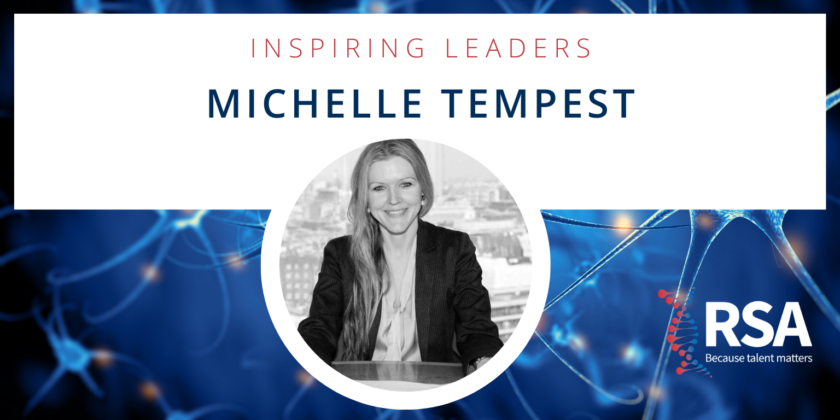Inspiring Leaders | Michelle Tempest
By Nick Stephens
Our next featured Inspiring Leader is the amazing Michelle Tempest, Partner at Candesic and author of ‘Big Brain Revolution: Artificial Intelligence Spy or Saviour?‘ Michelle shares her views on what it takes to be a good leader and how her background as a medical doctor was a great test of personal integrity and resilience. We love her mantra – ‘be grateful, be kind and try to see the world from each other’s point of view’. Enjoy this fascinating read!
What makes leaders become leaders?
Being a good leader isn’t something you can necessarily learn. You need to have passion, to know yourself and to have strong belief in what you want to do. If you have a clear idea of the way forward to what you want to achieve, you can bring others with you through the fog. Covid is a great example of the importance of this with everyone working at home, we need to engage people as never before and that requires new leadership skills, different to the traditional top-down management that many are used to.
Can you tell us about events or influences in your education or early career that helped to prepare you for leadership roles?
My home life was nurturing and supportive, the greater challenges were at school where I learned that if you want to do something, you must do it yourself. This was a great lesson to me and at one stage, when there was no maths teacher, I realised that I would have to teach myself too. It still surprises me that only 30 years ago there was a prevailing attitude at my school that maths wasn’t that important for girls and the lack of a teacher didn’t seem to be a cause of great concern!
As a medical doctor, I spent a lot of time working in accident and emergency departments. These are places where you learn leadership skills and teamwork almost without realising it. You have to be prepared to deal with every eventuality and, that moment, when someone’s life is at its most fragile, is a great test of personal integrity and resilience. It motivates people to go the extra mile, subsuming their own egos and working with others for a common goal.
How did you begin your career and what connected you with life science?
I’ve had an atypical career, starting in medicine and working for 14 years in the NHS so I’ve always worked in health and science environments. It was my move into management consultancy that was unusual for an NHS doctor. Working in healthcare is very hands-on and equips you well for problem solving. I wanted to look at broader approaches to improvement on a system-wide basis and management consultancy in a healthcare practice enables me to do that. My experience of working at an operational level, solving day-to-day problems, gives me the insights needed to bring about real change. In fact, I went into management consultancy hoping to change it from within as too much time is spent simply giving advice and I wanted to go further to help that advice be implemented so that my work could really make a change for the better.
What are the most important leadership skills that you’ve learned and would want to pass on to aspiring leaders?
As a medical student you learn that it’s important to teach the next generation and I still teach medical students to this day. Teaching is perhaps the most important thing of all, preparing people for the future they will face. It’s not just about the now, change is constantly present, testing us and challenging us to adapt.
Diversity in a team is vital and it can come in many ways. There’s plenty of evidence showing that companies perform better with more neurodiversity and leadership teams benefit from a balanced male/female ratio. This is most acutely demonstrated in financial trading where male dominated trading floors tend to take greater risks than more gender balanced teams who achieve better results, stability and ROI. It’s also key to listen to each other’s points of view. Join the dots. After all, how can you improve things without diverse thinking?
In life sciences, the care sector or business, spotting and understanding patterns is vital for organisational success, helping create better outcomes for people. Life is filled with challenges and it’s important not to shy away from the hard work needed to overcome them. It’s about problem solving. For some that will be discovering vaccines and, for others, reducing climate change. In a globalised world, we have never been so digitally connected but we mustn’t forget the human element of nurturing and working together so that everyone can be inspired to work out what they can do to make the planet a better place than when we arrived.
This is what drives me, and I try to embody this into any team. Be grateful and be kind, try to see the world from each other’s points of view. As Kamala Harris said, you may be the first, but you won’t be the last.
Note: If you want to read more of Michelle’s inspiring thoughts, you can read her new book, “Big Brain Revolution: Artificial Intelligence Spy or Saviour?” It’s available on Amazon click here for link.
Follow our LinkedIn Page to keep up to date with the full Inspiring Leaders Series.